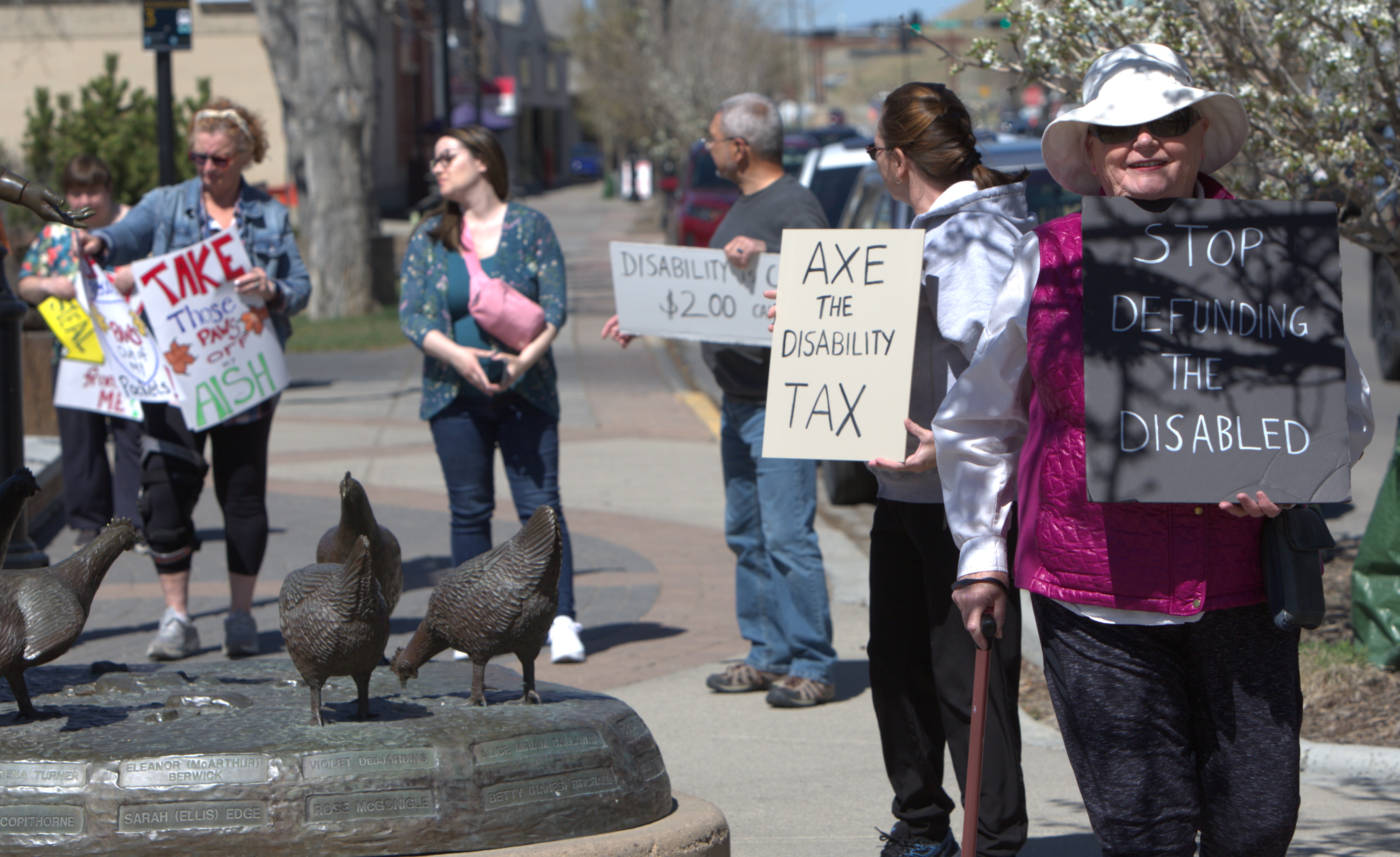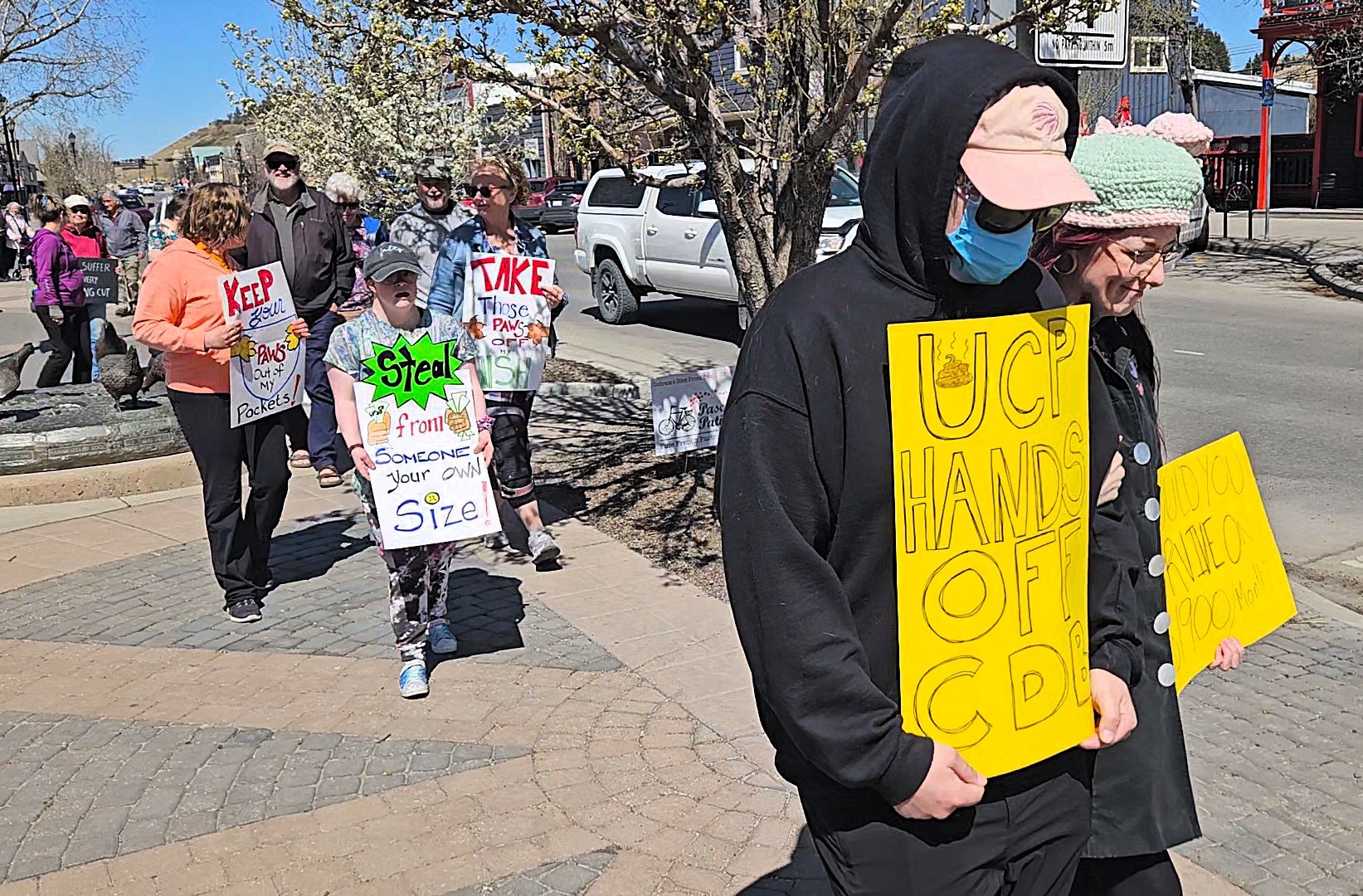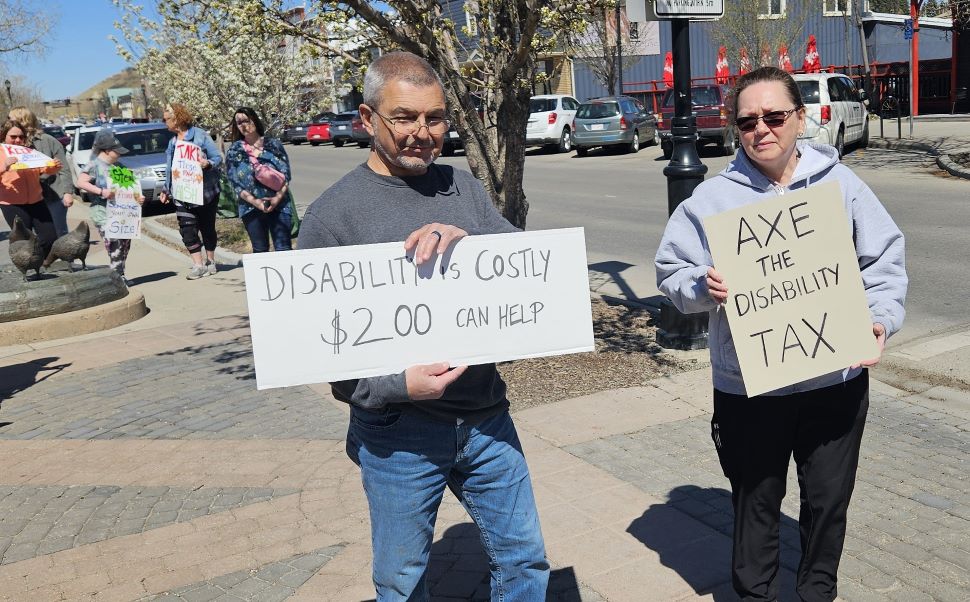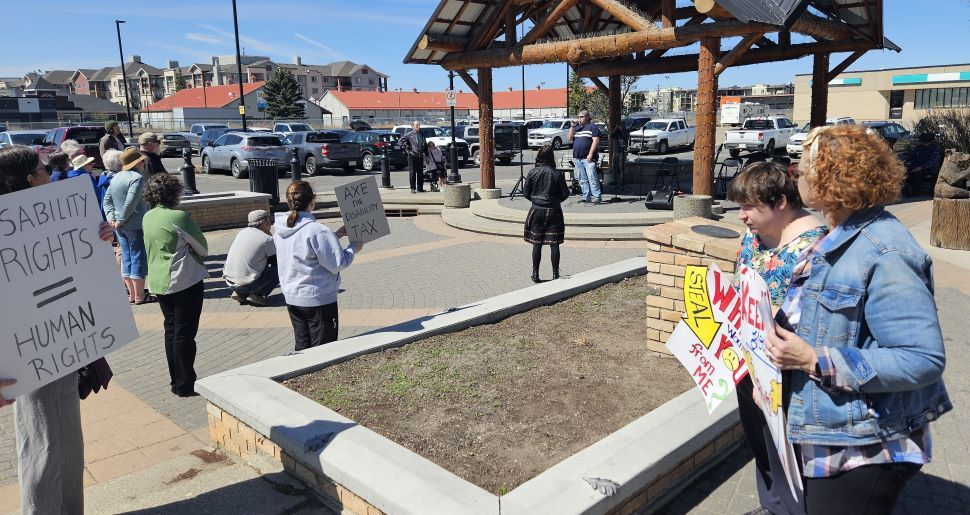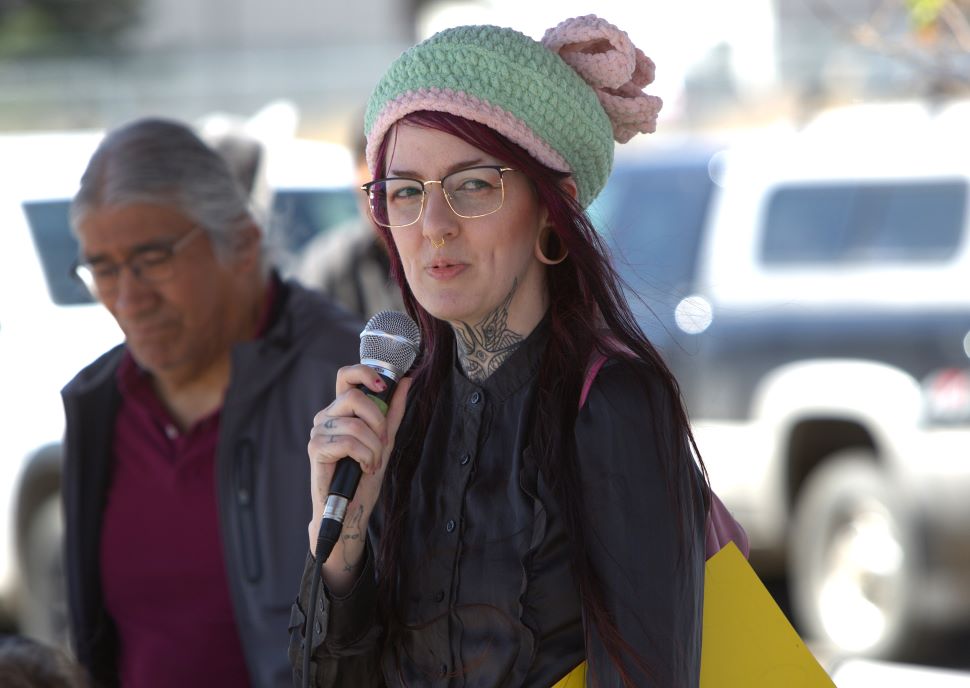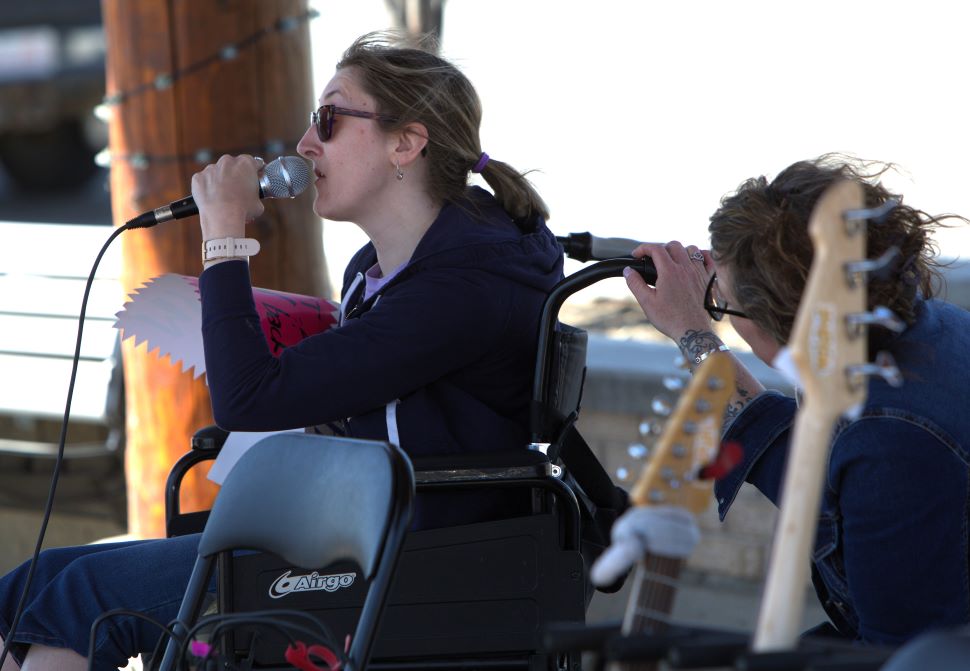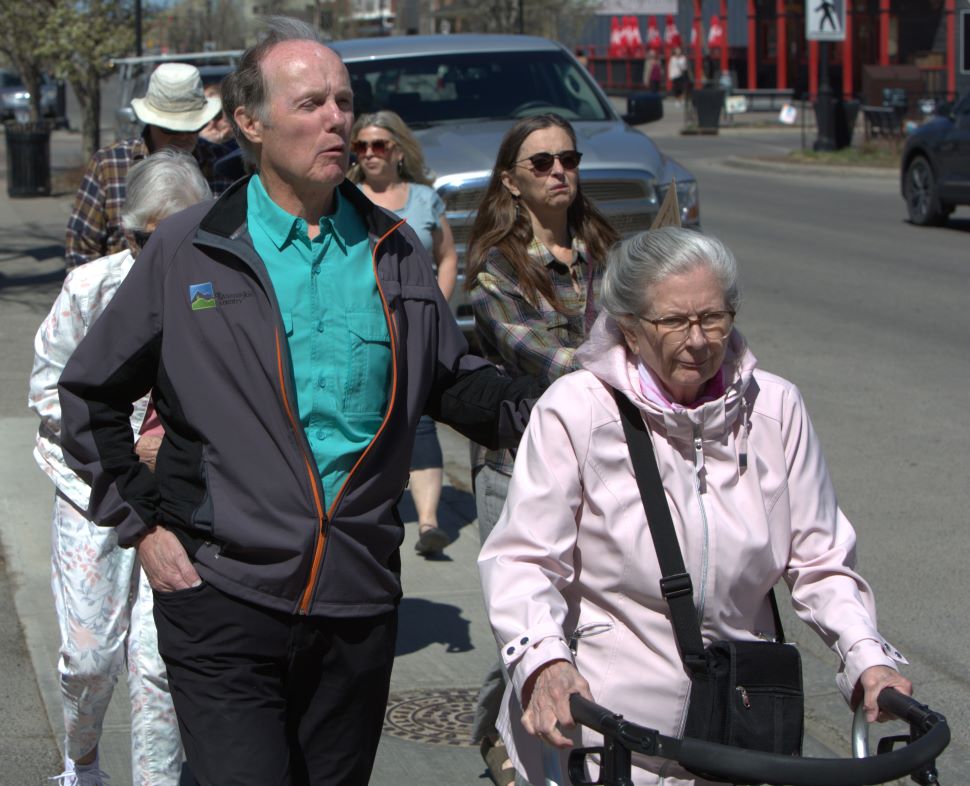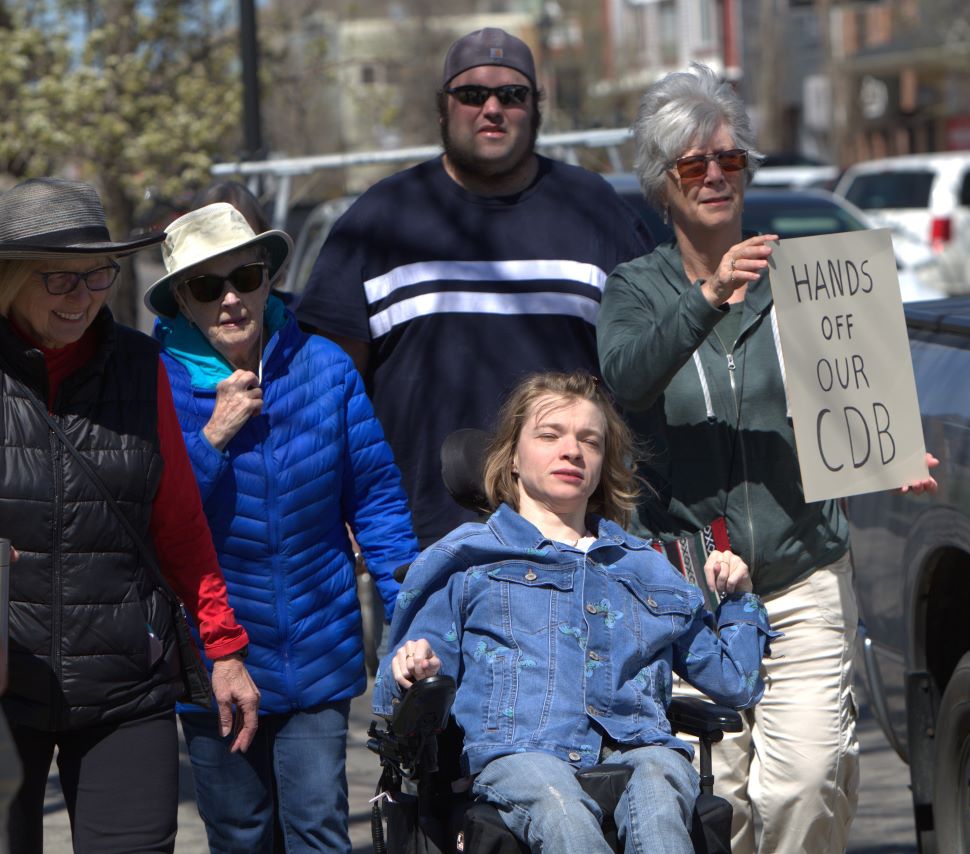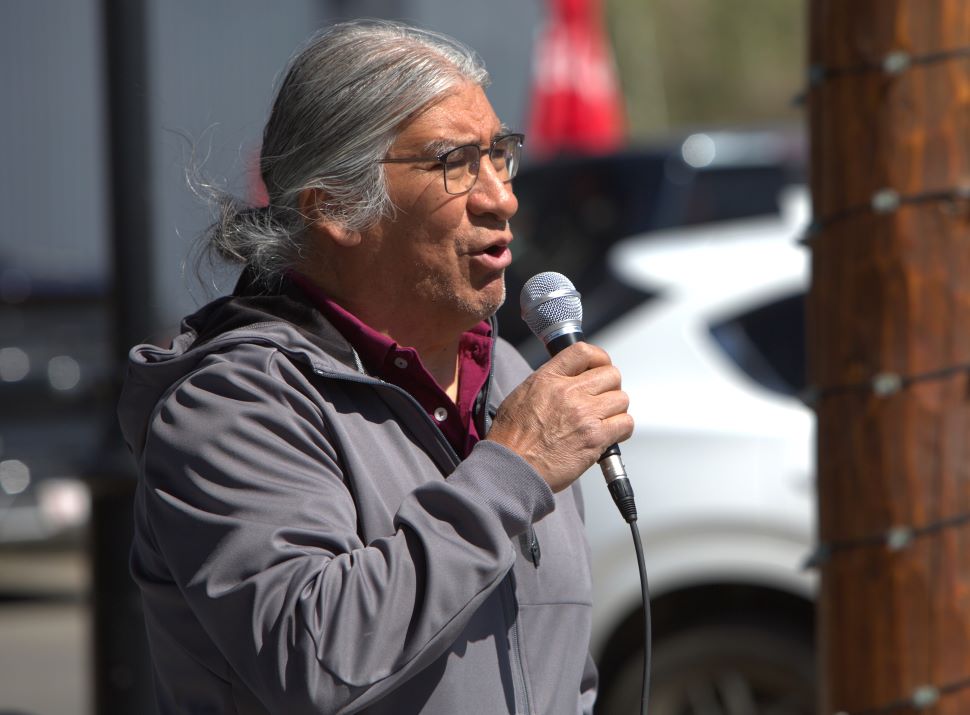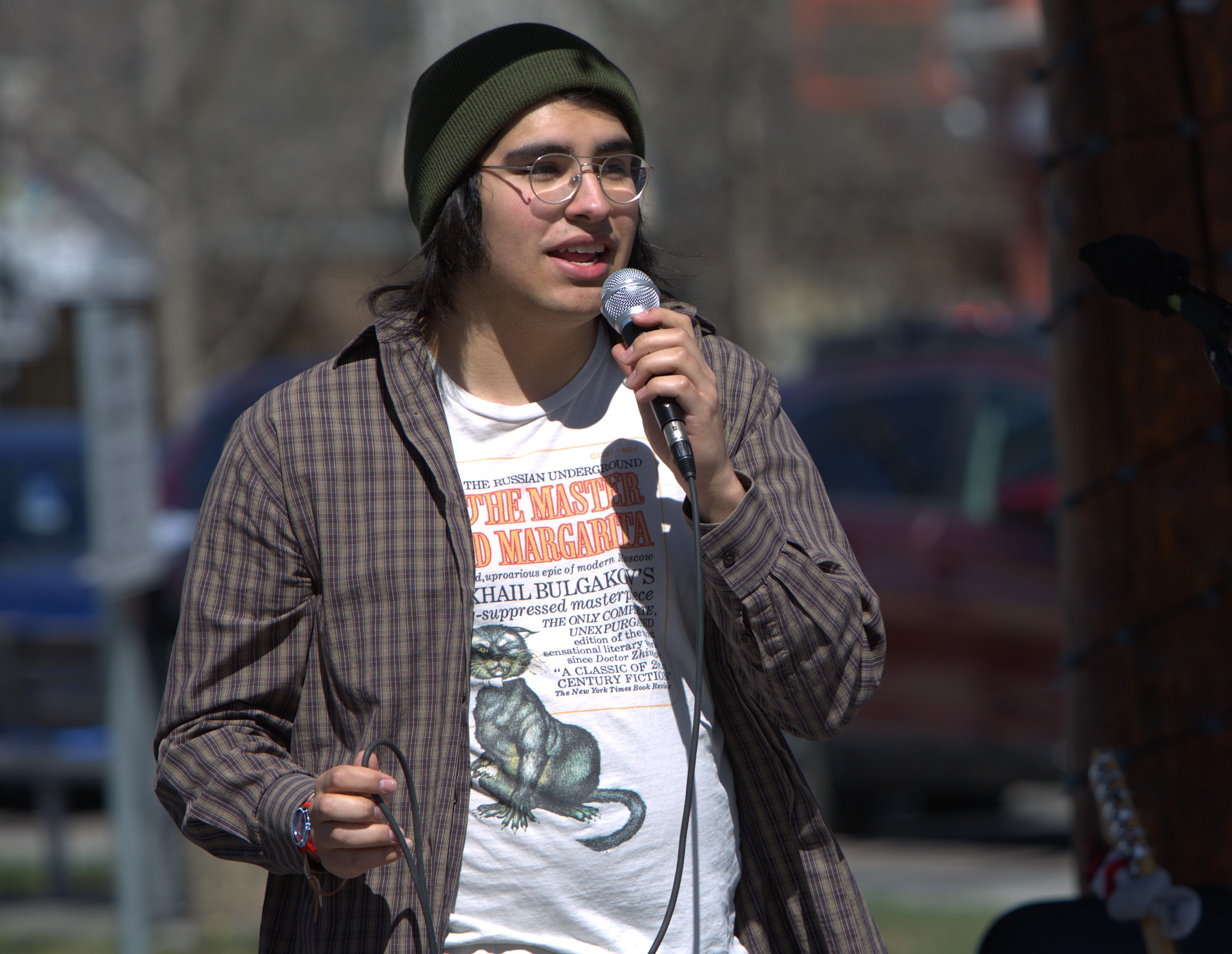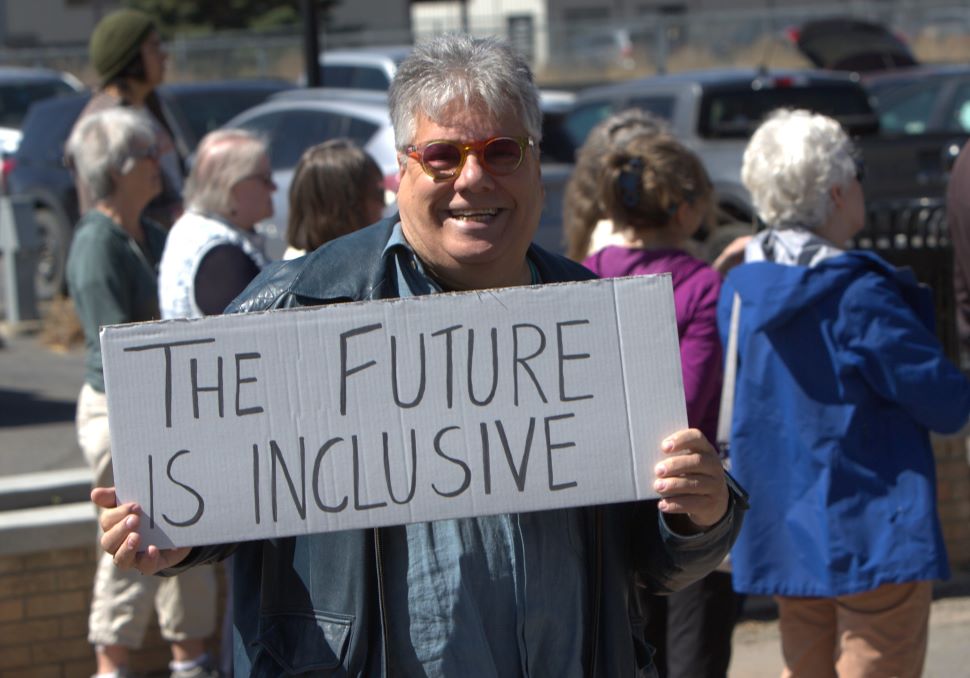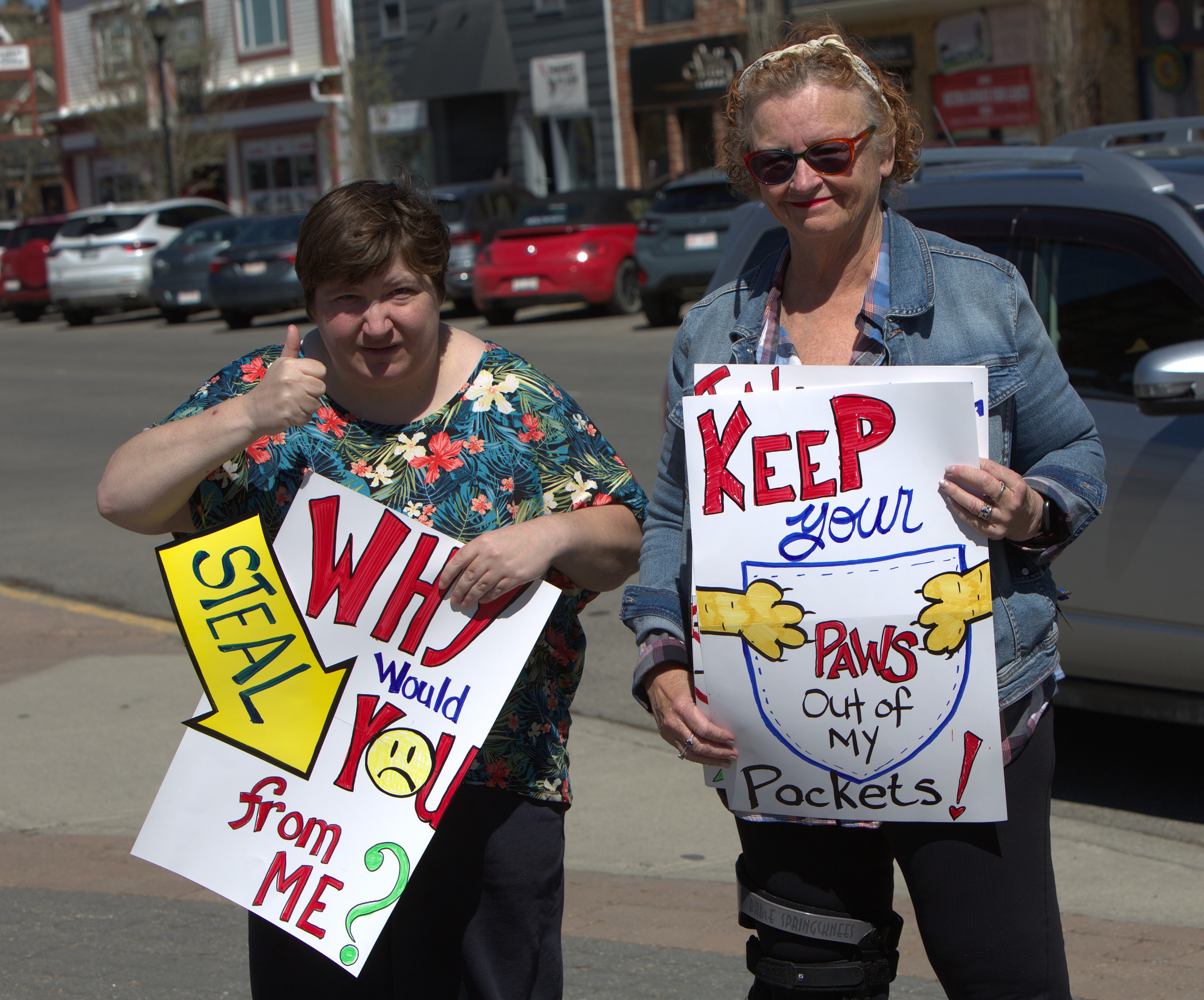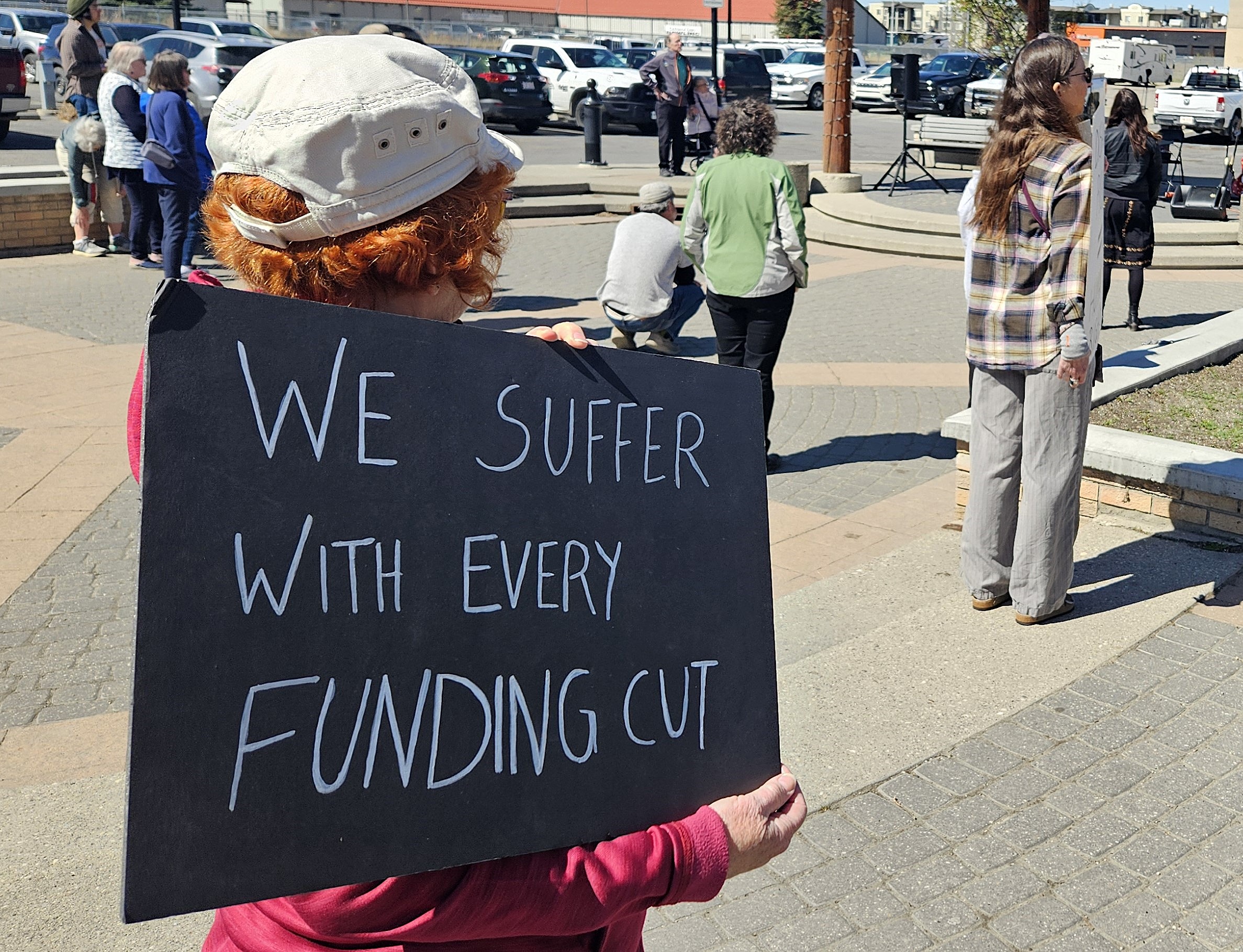The challenges faced by people with disabilities and their families were brought into the spotlight on May 6 at a demonstration held at Centennial Plaza, next to the Provincial Building in downtown Cochrane.
Supporters holding placards gathered to hear several speakers before marching past the Provincial Building, greeted at times by supportive honks from passing vehicles. Emcee Marcos Parrado said the demonstration was driven by growing frustration.
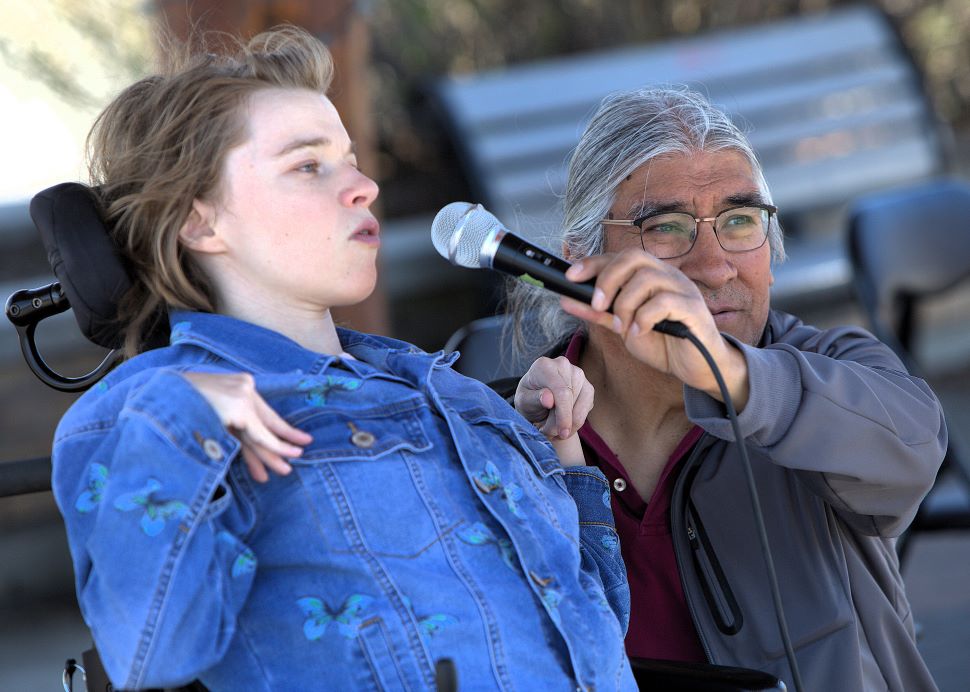
“It has motivated us to say something,” said Parrado. “Today, we are here to express those feelings. It’s a community issue that we are facing.”
While larger protests took place in Edmonton and Calgary, Parrado said it was important for Cochrane to have its own voice.
“We have these issues here in our community. It’s a real issue, and we need to do something to support all these people.”
David Johnstone, among the first to speak, accused the government of playing with people’s lives.
“We need this money for our future,” he said. “If they take it away, it’s taking away part of our lives.”
RELATED STORY
Parent Michelle Godar-Richer called for greater public awareness and understanding of the struggles faced by disabled people.
“If the government were taking money away from pensioners, there would be a much bigger outcry,” she said. “They don’t view the disabled the way they should, and I’m praying that in my lifetime that changes. I have an 18-year-old who’s like a child and will be home with me her whole life. And that’s the problem — we haven’t had our ‘MeToo’ movement. That’s what we need. People need to actually decide to care and understand the struggles of their fellow human beings.”
She said she has spent the last decade filing appeals to retain her daughter’s specialized therapies, a process that becomes more difficult once children turn 18.
“The minute they turn 18, it’s like the problem goes away. OK, here’s your money to live on — but there go the services. And those services are a big part of what you need, day in and day out.”
Godar-Richer also noted a growing number of diagnoses, especially for neurological disabilities.
“That’s a group who don’t have a voice. They’ve never had a voice. They rely on their caregivers to speak up for them.”
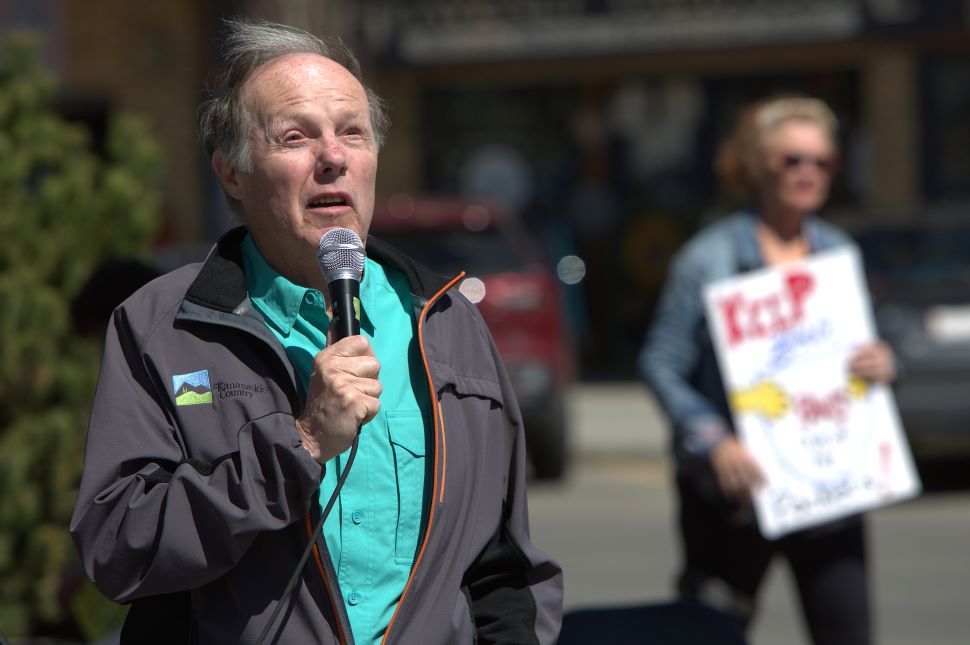
Protesters were particularly concerned about the Alberta government’s plan to claw back a $200 top-up from the new federal Canada Disability Benefit — a move no other province is making. Dr. Ross Watson, a former Cochrane town councillor who served for more than 20 years, said the decision lacks compassion.
“It’s a lack of humanity,” said Watson. “Here’s an opportunity for people who live on a very limited income to get a little more ahead — basically, to be able to pay their bills — and the province wants to take that federal grant away from them.”
He said there’s a widespread misconception that social benefits are being abused, but the reality is many are barely scraping by.
Watson acknowledged Alberta’s Assured Income for the Severely Handicapped (AISH) program is the most generous in the country at $1,900 per month but said it is still not enough. The additional $200 would make a “huge difference” in recipients’ lives.
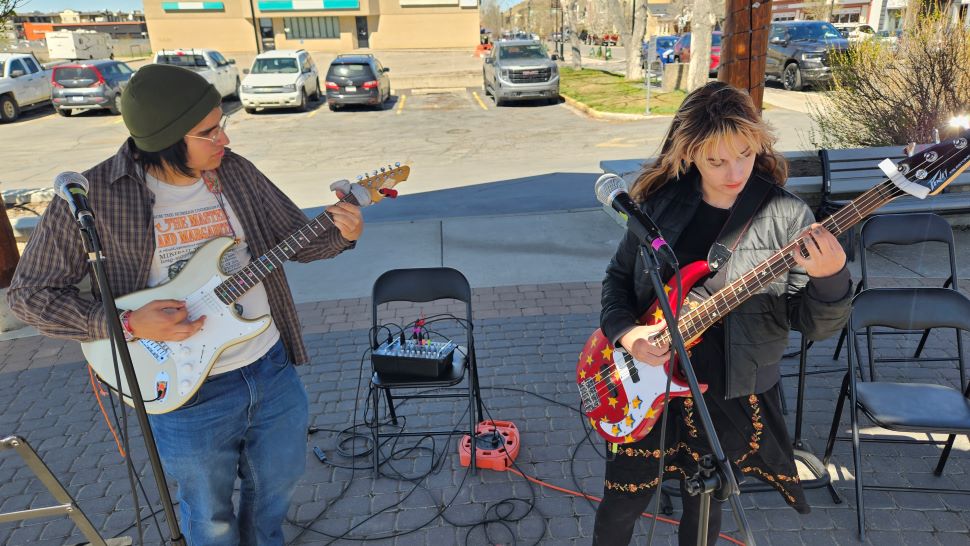
Performers Tupaj Parrado and Audrey Burch took the stage in support of the cause.
Parrado said he was heartened by the turnout but stressed the work cannot end there. He encouraged people to write to MLA Peter Guthrie and MP Blake Richards, reminding the crowd that disability can affect anyone at any time.
“It could happen to anyone,” he said. “It’s easy to create that ‘us versus them’ kind of thinking — that I don’t have to worry because I’m not disabled. But this could be you tomorrow. This could be me tomorrow. We’re fighting for everyone.”
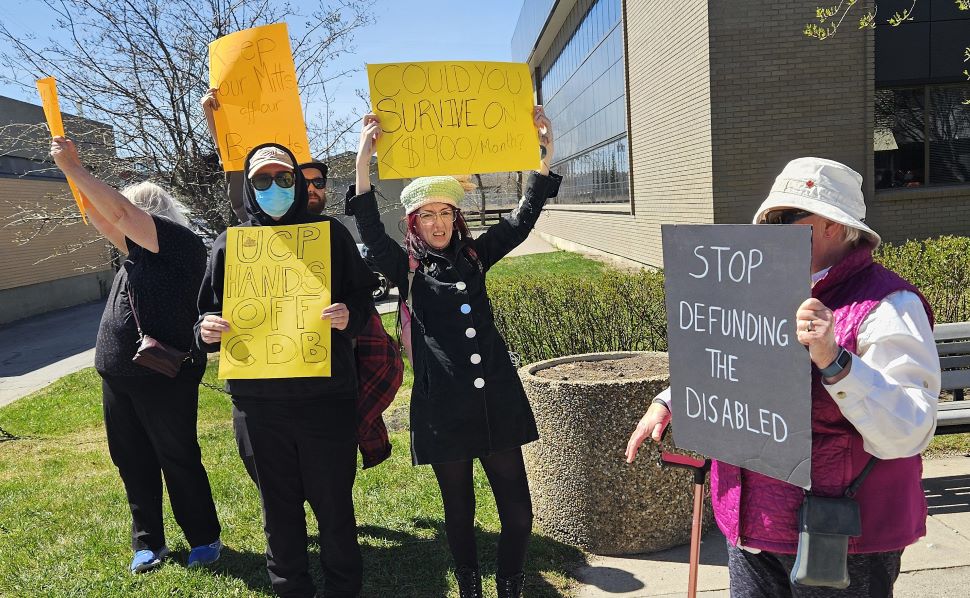
Burch, who has family members with both visible and invisible disabilities, emphasized the broader value of AISH.
“One of the things I’ve been passionate about, as well as my friends, is that AISH funding is actually part of improving quality of life,” she said. “Quality of life is important for everyone, not just people with disabilities. When you don’t have a high-quality life, you get sick — and that puts a strain on hospitals and other types of social supports that could be avoided just by helping people earlier in the process.”
